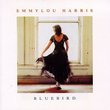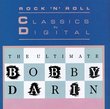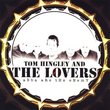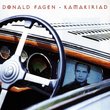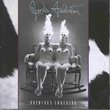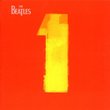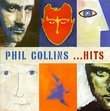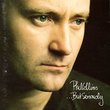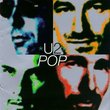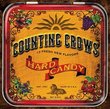| All Artists: New Order Title: Republic Members Wishing: 0 Total Copies: 5 Label: Qwest / Wea Original Release Date: 5/11/1993 Release Date: 5/11/1993 Genres: Dance & Electronic, Alternative Rock, Pop, Rock Styles: House, New Wave & Post-Punk, Dance Pop Number of Discs: 1 SwapaCD Credits: 1 UPCs: 009362452502, 093624525028 |
Search - New Order :: Republic
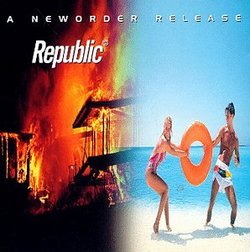 | New Order Republic Genres: Dance & Electronic, Alternative Rock, Pop, Rock
![header=[] body=[This CD is available to be requested as disc only.]](/images/attributes/disc.png?v=430e6b0a) ![header=[] body=[This CD is available to be requested with the disc and back insert.]](/images/attributes/disc_back.png?v=430e6b0a) ![header=[] body=[This CD is available to be requested with the disc and front insert.]](/images/attributes/disc_front.png?v=430e6b0a) ![header=[] body=[This CD is available to be requested with the disc, front and back inserts.]](/images/attributes/disc_front_back.png?v=430e6b0a) |
Larger Image |
CD DetailsSimilar CDs
Similarly Requested CDs
|
CD ReviewsConfident, fun, thoughtful and reassuring. Angry Mofo | 05/29/2008 (5 out of 5 stars) "Let me make a bold assertion: Republic is better than Low-life. The biggest improvement between the two is in Bernard Sumner's singing. His voice was an Ian Curtis imitation in 1982, and an exuberant but strained yelp in 1985, but around the time "True Faith" came out in 1987, he developed the warm and expressive style that defines New Order more than anything else. Republic refines that style to perfection. Sumner's lyrics refer to life-changing crises ("Ruined In A Day," possibly inspired by the bankruptcy of Factory Records) as well as the usual romantic troubles and loneliness, but his delivery is optimistic, if tinged with some melancholy. His compassionate tone makes his exhortations against fear and regret very comforting.
The music matches Sumner's vocals with an uplifting combination of piano, synth and guitar. Republic places more emphasis on keyboards than any other New Order album, and it also has the most danceable beats. It is, again, a smooth and comforting sound. That may be why Republic has a relatively weak critical reputation among New Order's albums. In fact, Technique may be a stronger album. Republic doesn't quite reach the dazzling inventiveness of "Fine Time" or the emotional height of "Vanishing Point," and it doesn't have the variety provided by the folk-inflected "Love Less." This is a streamlined dance album. And yet, there's something amazing about hearing New Order coast so confidently. Both Technique and Republic make up their creative peak, but on Republic they no longer have anything left to prove, and dispense great songs left and right with seemingly no effort. Even Republic's detractors will admit that "Regret" is a brilliant song, arguably New Order's best. It has a beautifully concise guitar line, produced with a hint of alt-rock energy, but also with a sudden electronic break. Of course there's a very memorable vocal rhythm in the chorus (the first of many on this album). And, although Sumner's voice has a bit of heartfelt resignation to match the title, the lyric is actually an expression of strength. In the chorus, the protagonist paints an idyllic picture of the life he'd like to lead, then uses it to rouse himself into resolving to start a new life with someone else in the second verse. It's slightly different in tone from the songs on Technique -- instead of just displaying his emotional turmoil, as in "Mr. Disco," or his world-weariness, as in "Vanishing Point," Sumner actually understates these things, and advocates building something in their wake. But in fact, the other singles are all just as good. Best of all, surprisingly, is the last and hugely underrated single "Spooky." I once read a negative review of Republic that singled out "Spooky" for especial ridicule, mainly due to the sample of some eighties techno song used in the intro. This occurs once -- but immediately after, the heavenly piano and synth melodies come in and drown out the churning rhythm. The chorus of this song beats "Regret" itself. Sumner gently nudges someone to break away from faint-hearted doubts and stand by his convictions: "Don't be afraid to live this way / Let's defend the things we say." How many people have real friends who will talk to them like that? And it doesn't end with the singles. "Young Offender" has a great cascading synth-piano hook and yet another terrifically catchy vocal rhythm from Sumner in the bridge. "Liar" has a chorus to rival any of the singles. "Chemical" has the album's hardest dance rhythm, but again brings in that piano-string hybrid to add a more nervous, worried sound. Sumner gives a similarly restrained performance. The break in the beat at the end of each chorus is effective. Most of the tracks have well-placed breaks, and the main melodies tend to get passed back and forth between different instruments in quick succession, which keeps the songs moving and prevents the album from dragging. The album is rooted in early-nineties house music. But, well, that was a good time for dance music -- the beats are fast and detailed without being too aggressive, and the album sounds much more lively than a lot of later nineties techno. Furthermore, the focus is on the keyboard melodies, all of which display New Order's signature style. This saves the album from sounding dated, even in the few places where it kind of is. For instance, Sumner's potentially embarrassing pseudo-rap in the verses of "Times Change" is buttressed by an arrestingly moody synth-string counter-melody, as well as yet another excellent chorus. Just as in "Spooky," the second the keyboards appear and Sumner starts singing, the album begins to sound timeless. And the last track, "Avalanche," is a very pretty instrumental that shows there's more to the album than attempts at club success. (By the way, another instrumental called "Vicious Circle" was released as a B-side to one of the singles -- it's a great track, and well worth the search). Perhaps Republic didn't get its due because it came out at the wrong time. In 1993, America was enthralled by deliberately undanceable grunge music, and British electronica was starting to splinter into the countless styles of nineties techno. The dissolution of Factory Records, followed by New Order's eight-year hiatus, didn't help either. But now, fifteen years later, it's clear that Republic shows the best band of the last thirty years at the very height of their powers." |

 Track Listings (11) - Disc #1
Track Listings (11) - Disc #1